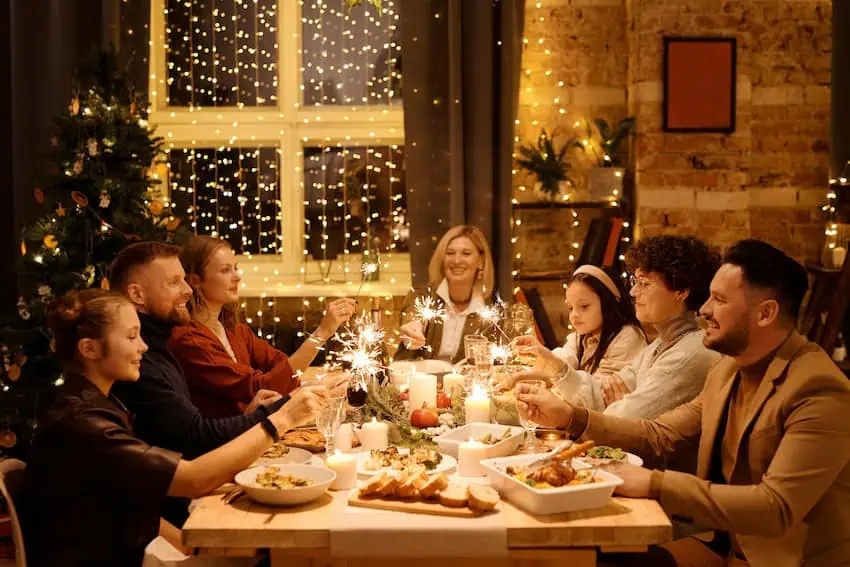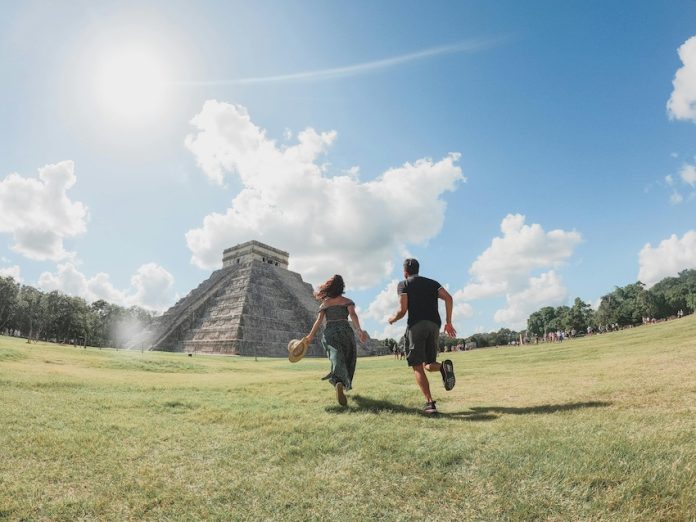According to the Australian Bureau of Statistics’ 2021 census, only 2,140 Mexicans live in the Greater Sydney area, which boasts a population of 5.5 million people. As one might imagine after reading those stats, authentic, mouth-watering, throat-tickling Mexican restaurants are few and far between. So when Sunny, a born-and-raised Australian, met Héctor, a Mexican expat working in Sydney, and asked what he missed the most about living in Mexico, he didn’t hesitate in answering: “tacos al pastor.”
The problem was that Sunny had never even heard of tacos al pastor. “I went immediately to Google,” she said during our recent interview over Zoom, laughing. Drawing on years of working as a professional chef and a childhood spent in her family’s restaurant, Sunny scraped together her first of many traditional Mexican dishes.

Héctor hadn’t been able to visit Mexico for three years due to Australia’s border policy during the pandemic, and he’d been surrounded predominately by Tex-Mex and other foreign interpretations of Mexican food. “I was so nervous when he was about to take his first bite,” Sunny says.
There was nothing for her to worry about, though, because Héctor was delighted. “It tastes like home,” he told her. Several years later, they tied the knot. Héctor later told her that it was those same tacos al pastor that sealed the deal.
Doing it the Mexican way: Going from personal struggle to community solutions
Relationships are rarely an obstacle-free ride. Learning to communicate with anyone, regardless of their background, is a lesson in humility, patience and curiosity. Coming from different cultures can add yet another layer to the mix, and many people facing road bumps in intercultural relationships find themselves wondering “is this cultural, or is it just my partner?”
Specifically, if you’re an Anglo woman dating a Mexican man, you probably already know that there aren’t many resources out there that can help you navigate the nuances. “When Héctor’s mom came to Australia for the first time, I had a hard time finding anything online to help me prepare for it. None of my friends were married to a Mexican, so they couldn’t offer me any advice.” How was Sunny supposed to greet her? What was she supposed to call her? This gap in information led Sunny to building an online community of women like her. Through that community, she started to see how unique her relationship paradigm truly was.

Taking off the Anglo goggles
A U.S.-raised woman myself, I can completely identify with the role we’re expected to fill these days – strong, independent, financially stable, able to raise a kid on her own if she wanted to. A woman like that definitely doesn’t “need” a man. But what happens when that woman falls in love with a Mexican man?
Clearly, we can’t fit the millions of Mexican men in and outside of Mexico into one shiny box with a list of instructions. Still, there are undeniable cultural differences that could, without the proper research, lead to unnecessary friction. Sunny believes that the uncertainty we face when entering intercultural relationships can all be avoided with cultural fluency. By “taking off your Western goggles and putting on your Mexican sunglasses,” the following dynamics might begin to surface.
- Noncommittal responses: Mexicans often prefer to say “maybe” instead of a direct “no” to avoid causing disappointment. This tends to clash with the Anglo preference for concrete plans and direct refusals.
- Group decision-making: People raised in Mexico may consult their family and friend group before finalizing plans in contrast to a U.S. or Australian emphasis on decisions made primarily by the couple for their own benefit.
- Family involvement: Daily contact with parents and a tendency to seek family input during conflict may come as a surprise to women used to greater boundaries between the nuclear family and extended relatives.
- Different emphases on the individual: Mexican culture tends toward group-oriented decision-making that prioritizes collective harmony as opposed to the Anglo tendency toward self-reliance and independence.
- Traditional gender roles: Relationships may involve protective behaviors that might seem controlling by contemporary Anglo standards. Mexican cultural expectations tend to embrace traditional masculine and feminine expressions while Anglo culture trends toward more fluidity between gender roles.
Seeing the relationship through this lens will also help you identify which parts of your culture might leave him feeling confused. Héctor, for example, didn’t initially understand the casual approach to dinner parties in Australia. His upbringing taught him to always bring a gift for the host or hostess and make a point to personally thank them before leaving. Sunny’s experience was a bit more casual. What he initially thought of as rude simply became “Australian,” in a way that his formality might simply become “Mexican.”
View this post on Instagram
Creating a handbook for bicultural relationships
Sunny’s adventure from a single Australian woman to creator of the Facebook community “I’m Married to a Mexican” has been a joyful one. More than building a strong partnership with her husband, she’s met women from all over the world in situations similar to her own, and the resulting insight has been fascinating.
She’s able to document cultural nuances that aren’t found in traditional resources, and offer advice that takes into account the cultural backstory, something nearly impossible for AI to do. She started conducting hour-long calls with women from different countries in relationships with Mexican men, discovering a host of interesting quirks and unique approaches to conflict that keep these relationships strong and healthy.
With this information, Sunny wants to create a pool of resources for women, and eventually men, to refer to when they find themselves asking the question, “Is it cultural, or is it him?” Some practical strategies she’s found up to this point include using food as a cultural connector, knowing the major themes in Mexican history, understanding a collectivist mindset versus an individualist one and identifying what emotional safety feels like for you
The future of cross-cultural relationship resources
Sunny’s vision extends well beyond her thriving Facebook community. “What I’m trying to create is a way to avoid the angst, the overwhelm and the constant questioning of what’s going on, what to do and what’s considered correct social etiquette,” she explains. “I want to create a pathway for women to stay strong within themselves, even when cultural differences might throw them off balance.”
Unlike generic advice that tells intercultural partners it’s best to just adapt to the other’s quirks, Sunny’s approach emphasizes cultural fluency without sacrificing who you are. The mentorship program she is developing is aimed at giving newcomers a chance to connect with experienced women for help when navigating challenges like communicating with their partner’s mother and sisters, first visits to Mexico and understanding when something is truly a red flag versus a cultural misunderstanding.
“When you’re struggling with these issues, you can’t always talk to your mom or friends about it because they’re viewing everything through a Western lens,” Sunny says. “You also can’t always talk to your Mexican friends because, for them, it’s normal.” Guidance from someone who’s walked this path before can be a game-changer.
Are you in a committed relationship with a Mexican partner and starting to feel the effects of those pesky cultural differences? Sunny is currently conducting research calls with women who feel confused, disconnected or unsure what’s cultural and what’s personal. She’s also interested in speaking with women who have it all figured out! If you’d like to participate, visit Calendy to schedule a call or join her Facebook group, I’m dating/I married a Mexican.
